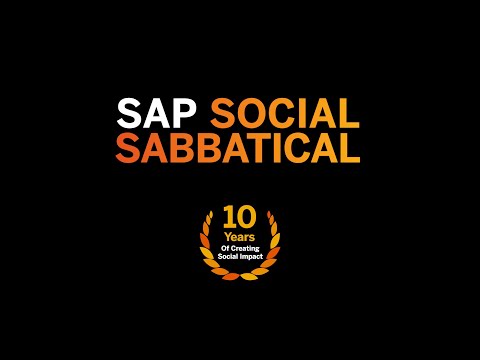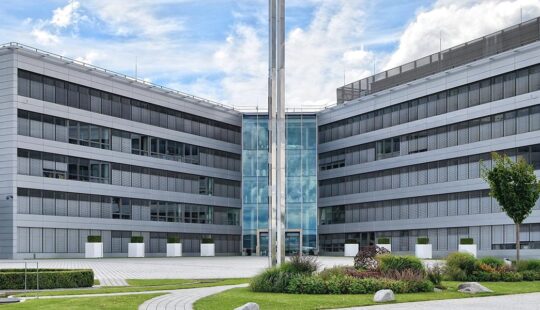The world has grappled with access to quality education for decades — a situation further complicated by the momentum of advancing technologies and, as a result, the ever-changing skills needed to succeed in the world.
And just when we think we have figured out a framework, a path forward to “solve the solvable” issues like education through the United Nations’ Sustainable Development Goals (UN SDGs), a global pandemic wipes out educational gains made over the last 20 years.
The Global Business Coalition for Education confirms that before COVID-19,
260 million children were out of primary and secondary school — and
75 million had their education interrupted by conflicts and emergencies. Because of
the pandemic, 1.6 billion children were forced out of the classroom.
Today we are confronted with both the harsh reality of life and an opportunity for a better tomorrow. COVID-19 has willed the world to prioritize and focus efforts on what matters most.
On January 24, SAP joins organizations across the world in recognition of International Day of Education. We reflect upon the important role education plays for a sustainable future and SAP Corporate Social Responsibility’s efforts to power equitable access to education and workforce readiness initiatives.
After a decade of bringing our best to the world to accelerate social business, join us in celebrating the impact achieved in this area through the award-winning SAP Social Sabbatical initiative.

For the past 50 years, SAP has guided organizations to become intelligent, sustainable enterprises. SAP Social Sabbatical has embraced this approach. By connecting employees and their skills to social sector organizations through pro bono consulting, we expedite world-changing solutions.
The portfolio of programs, executed in partnership with PYXERA Global, offers unique triple impact and delivers long-term sustainable benefits to client organizations, SAP participants, and the company. Our celebration honors this community, which includes 1,371 SAP employees who have worked alongside 453 nonprofit and social enterprise clients spanning 52 countries. Collectively, we have positively impacted more than 6 million people worldwide since 2012.
Youth4Jobs is a nonprofit organization based in Hyderabad, India. The organization creates education and employment opportunities for youth with disabilities that in turn delivers sustainable change for their families. In February 2019, Youth4Jobs hosted SAP Social Sabbatical participants, and challenged them to improve the organization’s business development strategy.
Founder and CEO Meera Shenoy shared, “The three SAP consultants adopted our passion for inclusion quickly and became part of the larger Youth4Jobs family, understanding our challenges and our transformational work. They also gave us a peek into the amazing processes of SAP in every area, be it recruitment, marketing, or customer cycle.” Shenoy believes that beyond the direct outcome of the project, her team was able to embrace these critical skills which continue to serve the organization and accelerate their incredible work.
Recently, SAP CSR partnered with 60 Decibels, an end-to-end impact measurement company, to conduct a study on the SAP Social Sabbatical. Eight-six percent of clients affirmed that participation in the program had a positive long-term impact on the beneficiaries they serve. One program director in Romania shared, “The work that we did together allowed us to build a scaled system to train teachers we serve for free and better prepare them for online teaching during the pandemic and afterwards. Significantly more teachers are now enrolled with our courses and activities than before.”
Our Journey Ahead
The last decade has demonstrated that pro bono consulting delivers truly transformative and lasting change. Throughout 2022, we are thrilled to bring you additional learnings from our decade of impact study with 60 Decibels to showcase the benefits realized by social sector clients, employees who participate, and SAP overall.
The strategy for SAP Social Sabbatical, initiated in 2012 as part of SAP’s response to the education crisis, is now evolving to also address the company’s pursuits around zero emissions and zero waste, while continuing to focus on zero inequality. We look forward to sharing more inspiration, innovation, and real solutions from our journey — past, present, and, most importantly, our future.
For more information, please visit sap.com/socialsabbatical.
Jennifer Beason is global program director of Social Entrepreneurship at SAP.
Hemang Desai is global program director of the SAP Social Sabbatical portfolio at SAP.



